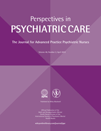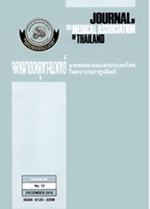UCLA Loneliness Scale (developed by Prof.Dr. Daniel W. Russell)
The Thaiversion (ฉบับภาษาไทยชื่อ แบบวัดความรู้สึกว้าเหว่ยูซีแอลเอ) was translated and tested (with permission) by Prof. Tinakon Wongpakaran, MD, FRCPsychT and Prof. Nahathai Wongpakaran, MD, FRCPsychT. They made the 20-item version (V3) in 2009 and the revised version in 2020.
แบบวัดความรู้สึกว้าเหว่ยูซีแอลเอฉบับ 20 ข้อ --> RULS-20 Thai.pdf (Version 2020)
การคิดคะแนน (scoring)
This measurement does not have cut-off. The higher score, the higher level of loneliness.
Before calculating for the total score, reversal of score is required in items 1, 5, 6, 9, 10, 15, 16, 19 and 20.
ข้อมูลคุณสมบัติทางจิตมิติ (Psychometric property)
Internal consistency is good, Cronbach's = 0.80 - 0.88, in university students and psychiatric patients. It has two factors i.e., positively worded and negatively worded items. The measure has unidimensionality. It has criterion validity towards attachment measure and inventory of interpersonal problems
Referenes
1. Wongpakaran T, Wongpakaran N. A short version of the revised 'experience of close relationships questionnaire': investigating non-clinical and clinical samples. Clin Pract Epidemiol Ment Health. 2012;8:36-42. doi:10.2174/1745017901208010036.
2. Neelapaijit A, Pinyopornpanish M, Simcharoen S, Kuntawong P, Wongpakaran N, Wongpakaran T. Psychometric properties of a Thai version internet addiction test. BMC Res Notes. 2018 Jan 24;11(1):69. doi:10.1186/s13104-018-3187-y.
6-item Revised UCLA Loneliness Scale (RULS-6)
RULS-6, derived from Revised UCLA Loneliness scale (Russell,1996). The RULS-6 met the criteria of unidimensionality and local independence without differential item functioning due to age and sex, and good targeting the clinical sample. Regarding reliability, RULS-6 showed to have acceptable person separation index (PSI), and the Cronbach’s alpha of the RULS-6 was good (.83). RULS-6 demonstrated convergent, discriminant validity, and concurrent validity.
Coding and scoring
No reversing values for item is required before summing up. The RULS-6 scores range from 6 to 24.
Interpretation
In general, the higher the score, the more the loneliness is indicated. However, we could use the distribution of scores based on the respective sample. For example, a high vs. low level of RULS-6 score, or a level of RULS-6 among the samples could be grouped in three categories: “low” for scores below the 25th percentile, “average” for scores ranging from the 25th to the 75th percentile and “high” for scores above the 75th percentile.
English version of RULS-6 -->RULS-6 Eng.pdf
Conversion table of RULS-6 to interval (ตารางการแปลงคะแนนจากคะแนนรวมของ RULS-6 เป็นคะแนนแบบ interval) --> conversion Table
References
1. Wongpakaran N, Wongpakaran T, Pinyopornpanish M, Simcharoen S, Suradom C, Varnado P, Kuntawong P. Development and validation of a 6-item Revised UCLA Loneliness Scale (RULS-6) using Rasch analysis. Br J Health Psychol. 2020 Jan 30. doi: 10.1111/bjhp.12404.
2. Russell, D. W. (1996). UCLA Loneliness Scale (Version 3): Reliability, validity, and factor structure. Journal of Personality Assessment, 66(1), 20–40. https://doi.org/10.1207/s15327752jpa6601_












